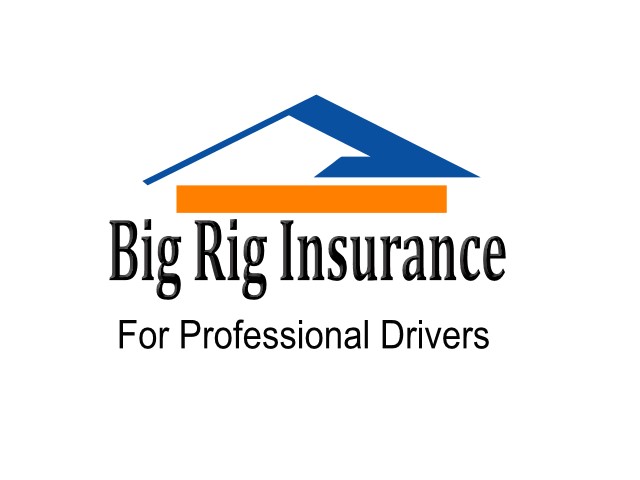Big Rig Insurance Programs: Your Trusted Partner in Commercial Trucking Insurance in Texas
![]()
Texas is the heart of America’s commercial trucking industry, boasting approximately 129,384 trucking operations that range from single-owner operators to large, complex fleets. The vast network of freight and logistics activity requires tailored insurance solutions to keep businesses moving and compliant with state and federal regulations.
At Big Rig Insurance Programs, we take pride in delivering fast quotes, expert services, and timely Certificates of Insurance (COIs) to ensure our clients can secure loads and maintain operational efficiency.
With a legacy that began in 1986, our lead agent brings nearly four decades of expertise to the table, offering personalized service, deep industry knowledge, and an unwavering commitment to Texas-based trucking businesses.
For phone quotes call us now at (855) 554-6321. From 1 unit to 40 use the quick contact form below.
Why Choose Big Rig Insurance Programs for Your Texas Trucking Operation?
1. Fast and Accurate Quotes
Understanding that time is money in the trucking industry, we prioritize efficiency. Whether you’re insuring a single truck or a sprawling fleet, our streamlined process ensures you get competitive quotes tailored to your specific needs. We’ll help you evaluate options that balance coverage with affordability.
2. Timely Certificates of Insurance (COIs)
Timely COIs are essential for securing contracts and loads. Our team is committed to providing these critical documents promptly, allowing you to focus on delivering freight without delays. Whether you’re working with a new broker or responding to a time-sensitive request, you can rely on us for immediate support.
3. Expert Insurance Services
With a proven track record since 1986, our lead agent offers an unmatched depth of experience. Our team stays current with industry trends and regulatory requirements, ensuring we can navigate the complexities of trucking insurance with ease. We’re equipped to handle filings for state and federal requirements, helping you stay compliant without the hassle.
4. Coverage for All Trucking Operations
From light-duty trucks to extra-heavy rigs, we’ve got you covered:
- Light Trucks: Ideal for small deliveries, couriers, and regional operators.
- Heavy Trucks: Suitable for long-haul freight and specialized cargo.
- Extra Heavy Trucks: Coverage for oversized loads, hazardous materials, and extreme-duty vehicles.
We understand the nuances of each type of operation and provide tailored solutions to meet specific risk profiles.
Understanding Trucking Insurance Requirements
Typical Coverage Types for Trucking-for-Hire Operations:
- Primary Liability Insurance: Required by law, this covers damages or injuries to others caused by your truck.
- Physical Damage Coverage: Protects your vehicle from accidents, theft, or natural disasters.
- Cargo Insurance: Covers the goods you transport in case of damage or theft.
- General Liability Insurance: Provides additional protection for incidents that occur outside the truck, such as at loading docks.
- Non-Trucking Liability Insurance: Offers coverage for personal use of a commercial vehicle.
- Bobtail Insurance: Protects when you’re driving without a trailer attached.
- Uninsured/Underinsured Motorist Coverage: Protects against accidents involving drivers with insufficient or no insurance.
Meeting Texas-Specific Needs with IFTA and Beyond
The Role of the International Fuel Tax Agreement (IFTA)
For many Texas-based trucking companies, compliance with the International Fuel Tax Agreement (IFTA) is a requirement. IFTA simplifies the reporting of fuel taxes for vehicles traveling in multiple jurisdictions. We assist our clients in understanding their IFTA obligations, ensuring their compliance while minimizing administrative burdens.
Streamlined State and Federal Filings
Navigating the paperwork maze of state and federal filings can be overwhelming. That’s why we handle:
- FMCSA Filings (Federal Motor Carrier Safety Administration)
- State DOT Filings (Department of Transportation)
- BOC-3 Process Agent Filings
- MCS-90 Endorsements
By managing these filings for you, we help your business remain operational and compliant with minimal downtime.
Built on Trust, Backed by Experience
At Big Rig Insurance Programs, we understand the stakes involved in the trucking industry. Your success depends on reliability, and we’re committed to being a partner you can trust. From fast, accurate quotes to expert guidance and seamless compliance management, we’re here to support your business every step of the way.
Whether you’re a new trucking business or a seasoned operation looking to improve your insurance coverage, our team offers top-notch services designed for Texas-based companies. Contact us today and experience the difference of working with an agency that combines personalized care with industry-leading expertise.
Let us take the load off your shoulders—because your journey deserves the best protection.

Use our Truck Insurance Quotes Form & compare your best offers from one source (855) 554-6321 .
In states where we are not acting as licensed insurance brokers, we may work in partnership with other organizations that may pay us a referral fee for helping you find the best qualified insurance entity.
